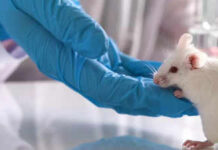Cardiac failure is when your heart cannot pump blood effectively enough to meet the body’s needs. This can occur when one or more of the heart valves become damaged. In these cases, there may be a need for heart valve surgery. Cardiac failure usually results from diseases that affect the heart and its valves, such as rheumatic fever, congenital disabilities, and hypertension (high blood pressure). Aortic regurgitation occurs when your aortic valve does not close properly, and blood flows through the valve during each heartbeat. The regurgitation causes increased pressure in the left ventricle, which can lead to other problems. Aortic regurgitation is a common complication of aortic stenosis and may require aortic valve replacement.
Cardiac failure is when your heart doesn’t pump enough blood to meet the body’s needs. In simple terms, when the heart muscle stops working correctly, it causes the heart to fill up with fluid.
Cardiac failure is a serious condition that requires immediate medical attention. Your doctor can advise you about what you should do if you experience any of the symptoms associated with cardiac failure.
If you notice symptoms such as breathlessness, tiredness, or feeling cold or weak, seek medical help immediately.
Introduction:
Cardiac failure (CF) is a type of heart disease where your heart muscle becomes damaged. The heart cannot pump enough blood throughout your body. Your heart may also enlarge over time. Your lungs and kidneys can also become damaged. CF can be caused by a genetic problem or because of an infection. In many cases, CF occurs without warning signs.
You may have no symptoms, but you may feel tired all the time and have shortness of breath. People with CF are more likely to experience lung problems, such as chronic bronchitis. They may also develop a chronic cough lasting more than three weeks. If you have CF, your doctor will check your lungs regularly. They may recommend that you have a chest X-ray every year to check for new problems. Your doctor will also ask about any other symptoms you might be having.

What is cardiac failure?
Cardiac failure is when your heart doesn’t pump enough blood to meet the body’s needs. In simple terms, when the heart muscle stops working correctly, it causes the heart to fill up with fluid.
A common cause of this condition is heart disease. Heart failure can result from many different shapes, including hypertension, diabetes, chronic kidney disease, coronary artery disease, valvular disease, congenital heart disease, and cardiomyopathy.
What are the signs of cardiac failure?
Cardiac failure is when your heart doesn’t pump enough blood to meet the body’s needs. In simple terms, when the heart muscle stops working correctly, it causes the heart to fill up with fluid.
Your doctor can advise you about what you should do if you experience any of the symptoms associated with cardiac failure.
Causes of Cardiac Failure
The most common cause of cardiac failure is a malfunctioning heart valve. A heart valve is a structure that allows blood to pass from the left ventricle of the heart into the aorta, allowing blood to circulate.
When a valve is damaged or fails, the patient experiences chest pain, breathlessness, and fainting. The heart can no longer pump properly, causing fluid in the lungs and other organs.
Valve disease is usually inherited but can also be caused by infection or injury.
A less common cause of cardiac failure is a condition called dilated cardiomyopathy. This is a disease of the muscles of the heart and occurs when they grow bigger than usual.
The disease usually affects older men. As the heart muscles enlarge, the heart pumps blood more slowly. The result is an enlarged heart.
What Are The Symptoms Of Cardiac Failure?
When it comes to cardiac failure, the symptoms can vary from person to person. Some people may feel weak and tired, while others may experience shortness of breath, sweating, or palpitations (an abnormal heart beating).
There are four main types of cardiac failure.
Acute coronary syndrome (ACS) – This is where the heart muscle is damaged. A heart attack, heart surgery, or a heart blockage can cause it.
Heart failure – This happens when the heart is not pumping blood efficiently.
Peripheral arterial disease (PAD) is a condition where the arteries of the lower extremities become narrow and constricted, causing poor circulation to the legs.
Hypertrophic cardiomyopathy (HCM) is a condition where the heart muscle is thickened, causing the heart to work harder to pump blood.
Treatment of cardiac failure
The most common symptom of cardiac failure is breathlessness, particularly during exercise. Other symptoms include fatigue, weakness, dizziness, and a rapid heart rate.
If you are experiencing any of these symptoms, you may suffer from cardiac failure. If so, your doctor can give you further advice and treatment.
If you’re concerned about the possibility of developing cardiac failure, you should speak to your GP as soon as possible.
Causes of Cardiac Failure can develop at any age. The most common causes of this condition include heart disease, coronary heart disease (e.g., angina), and heart attacks. Congenital heart disease – which is present from birth. Valvular heart disease – where the valves in your heart become damaged or fail to function properly, allowing blood to leak backward into your heart. Your doctor may be able to advise you on what steps you can take to protect yourself from the condition.
Frequently Asked Questions About cardiac failure.
Q: What do you think causes cardiac failure?
A: Cardiac failure can be caused by anything from a virus or infection to an over workout to an emotional trigger like anger. There are some things you can do to prevent it from happening. Exercise and get plenty of rest. Drink lots of water and eat healthy foods. And if you feel like you are feeling overwhelmed, take a break and go somewhere quiet where you can clear your head.
Q: How do you know if you are experiencing cardiac failure?
A: If you feel tired and short of breath or weak and cannot do even light exercise, you may have experienced cardiac failure. You may also experience headaches, chest pains, dizziness, or fainting. If you feel like you’re having a heart attack, call 911 immediately!
Q: How did you hear about Cardiac Failure?
A: My mom told me about it when she heard about my heart condition. I didn’t know I had it until I was 15.
Q: What are your thoughts on cardiac failure?
A: I think it’s amazing. I’ve never experienced it before, but I’m very thankful to have this opportunity to do it.
Q: What does Cardiac Failure mean to you?
A: It means I can travel the world with my family and friends without fear or worry about my health.
Q: If you were a Cardiac Failure patient, what would you like your cardiologist to tell you?
A: I would want them to tell me that I am a survivor and that I have the power to change my life.
Top Myths About cardiac failure
1. Cardiac failure occurs most commonly in older people.
2. Cardiac failure only occurs as a result of heart disease.
3. Cardiac failure can be treated by medication and surgery.
4. Cardiac failure is only caused by an enlarged heart.
Conclusion
Cardiac failure is the inability of the heart to supply blood to the body effectively.
The most common causes of cardiac failure are coronary artery disease, cardiomyopathy, and valve disease.
Cardiac failure may be acute or chronic.
Acute cardiac failure is a temporary condition where the heart doesn’t function properly.
Chronic cardiac failure is a long-term condition where the heart does not function normally.




